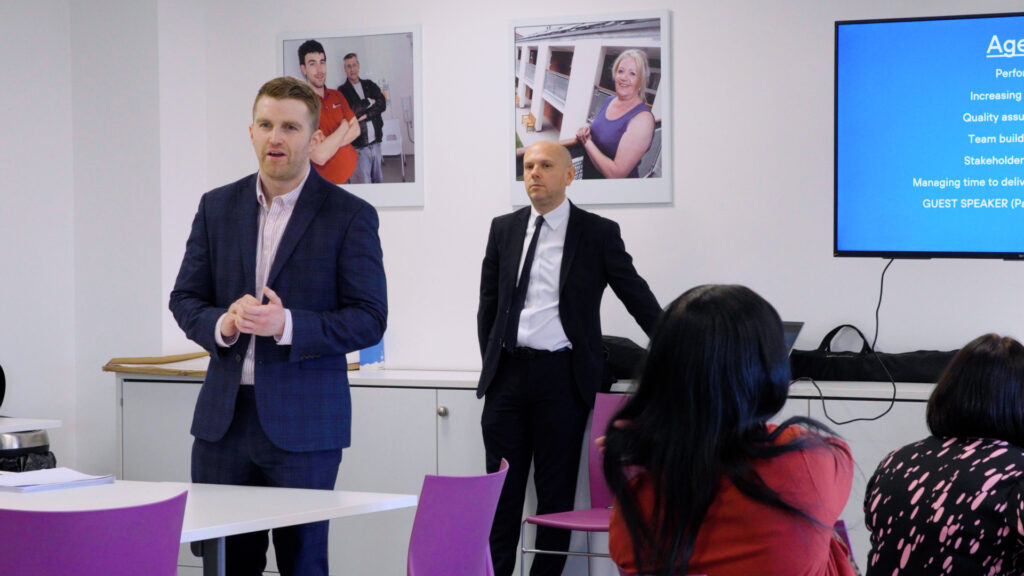FTA Collection: A Former Income Manager’s Perspective
Former tenant arrears (FTA) is somewhat of a fly in the ointment amongst income teams across the sector as a whole, being viewed as a niggling problem that social landlords know they must solve but don’t quite know what the best approach is to do this. We’ve delved into the pervading perceptions of FTA elsewhere within these pages via our FTA: Social Housing’s Silent Threat article, as well as taken an in-depth look at the issue as a whole and what can be done to tackle it in our FTA In Conversation video feature, so do check those out to find out more.
Whilst it’s all very well us telling you the challenges FTA presents and offering insight on how to approach them, we thought we’d get a handle on how the collection of FTA really affects those ‘at the coalface’ as it were and so we asked Mobysoft income maximisation director and former local authority and HA income manager, Nick Beasley, to give us the lowdown on FTA from an income team perspective. Here’s what he had to say…

General Perceptions of FTA
“Income teams, in my experience, tend to view collecting former tenant arrears with trepidation. Whether this is right or wrong though depends on how well their organisation is set up to deal with them and what the prevailing culture is within that organisation” says Beasley. “There’s a school of thought that says collecting FTA, more often than not, fails yield a return on investment in terms of the resource attributed to the task to make it a worthwhile venture”.
This widely held view however is not always true and is unfortunately perpetuated partly due to the priority focus for income teams is nearly always current tenant arrears. “I think if you asked any income manager or even officers themselves then they’d all say that it’d be nice to be able to dedicate more time and resource to FTA” says the former income recovery team leader at Rotherham Metropolitan Borough Council. “Unfortunately, there’s kind of always been this legacy view that current tenant arrears are most important area of attention, and this is often a way of thinking that is so well established within organisations that staff members find it difficult to challenge as it’s hard for those doing the challenging to demonstrate the ROI from channeling time and resource into collecting FTA”.
There has been a steady shift in organisational attitudes to FTA in recent years however, largely thanks to developments in technology that allow identifying FTA cases that warrant actioning and have the potential to be resolved. “More and more we’re seeing social landlords harness technology such as Mobysoft’s FTA Essentials which effortlessly integrates with HMS and algorithmically understands and projects the collectability of debt” said Nick. “It’s platforms such as this and the steady adoption of them across the sector which is enabling organisations to provide a much more prioritised & focused approach to FTA debt recovery.”

Challenges and Best Practices
There are several cumulative factors that can lead income teams to view FTA as a bit of a headache, including a lack of handover from CTA to FTA, administrative errors around tenancy end, and missing contact information and/or forwarding addresses for income recovery staff to work from. “When actioning FTA collection it’s often difficult for income teams to know where to start with the masses of accounts, especially given that prior experience will tell them that the data available is likely to be a bit of a mess and missing key details” says Nick. “Taking this into account it’s no surprise that internal social housing providers internal processes have developed over time towards simply writing off the debt as opposed to formulating a solution for effective collection – resources are often stretched and writing off FTA, in the immediate term at least, frees up that resource” he added.
It’s quite evident then, given what we’ve explored so far in this piece, that remedying this problematic FTA situation would require a culture shift within organisations and the adoption of universal best practice. But what constitutes ‘universal best practice’ when each social landlord will have its own internal culture and a different set of challenges specific to that organisation? “Whilst approaches to FTA will differ from landlord to landlord – influenced by several things including demographics of customer base and other ‘environmental factors’ – there are a few pillars of good practice that can be applied across the board” says Nick. “Tight end-of-tenancy process allowing for data capturing and substantive conversations, having a system in place that easily identifies and segments cases so resources can be directed in the right places, and utilising intelligent automation for things such as contact resolution are things that can be implemented by any social landlord to support in the collection of FTA”.
Those heading up income functions face a slightly more difficult challenge however when it comes to changing the culture of their teams and wider organisation to get staff to approach FTA effectively. “The key to reshaping an ingrained culture and influence personnel to approach FTA positively is to implement systems that work” says the former Yorkshire Housing man. “Without a system that allows you to be collection driven rather than write-off/process driven, nothing will change and ‘the path of least resistance’ of simply writing off debts accrued by former tenants will continue”.

Golden Advice
Throughout this feature we’ve explored the challenges thrown up by FTA collection from the perspective of those heading up income teams. It’s evident that effectively addressing FTA is complex and that there’s no ‘magic bullet’ approach that will solve what is a multi-faceted issue. However, our in-house expert and former income officer Nick Beasley, has one golden piece of advice for every social landlord regardless of size or standing: “Utilise technology available to you to its fullest extent” says Nick. “If you have a way of truly identifying cases that need contact vs the ones that don’t need contact you will create huge savings in capacity through reduced administrative costs, manual handling, and labour intensive approaches to collection. An intelligent system will flag a case at the earliest possible point, remove the white noise (payers and non-collectibles), and allow you to focus on collection.”
If you’d like to learn more about Mobysoft’s FTA solutions, then download our Effective Management of Former Tenant Arrears Guide.
- Staff Spotlight: Jack Pawson - July 23, 2024
- This Month In Social Housing: June 2024 - June 28, 2024
- Customer Success Snapshot: London Borough of Barking & Dagenham - June 21, 2024